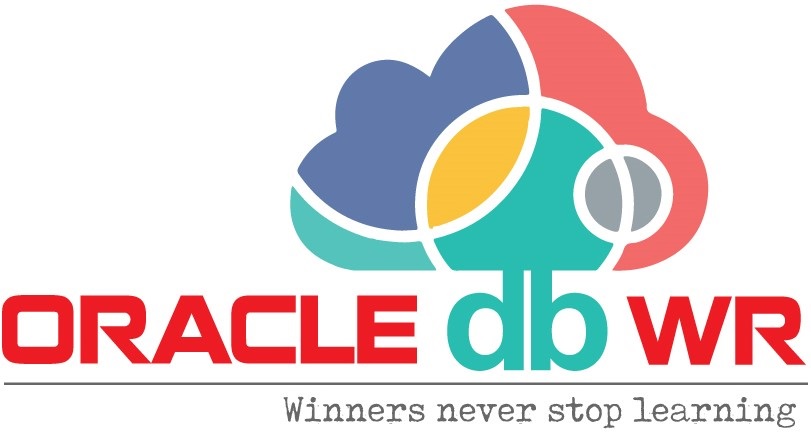What are the activities performed by DBA?
The DBA role typically spans multiple production environments, development teams, technologies and stakeholders. They may be tuning a database one minute, applying a security patch the next, responding to a production issue or answering developers’ questions.
They need to ensure backups and replication are configured correctly, the appropriate systems and users have access to the right databases (and no-one else!), and they need to be on hand to troubleshoot unusual system behaviour.
Their real value lies in understanding the mechanics and details of the database itself, its runtime characteristics and configuration, so they can bridge the gap between developers writing queries and operations staff running jobs.
A skilled DBA can identify ways to speed up slow-running queries, either by changing the query logic, altering the database schema or editing database runtime parameters.
For instance, changing the order of joins, introducing an index (or sometimes removing an index!), adding hints to the database Query Execution Planner, or updating database heuristics, can all have a dramatic impact on performance.
Oracle DBA to a DevOps :
DevOps engineer you need to undergo training and certification.
DevOps is a set of best practices that emphasize the collaboration and communication of IT professionals (developers, operators, and support staff) in the life cycle of applications and services, leading to:
Continuous Integration: merging all developed working copies to a shared mainline several times a day
Continuous Deployment: release continuously or as often as possible
Continuous Feedback: seek feedback from stakeholders during all life cycle stages
ORACLE DBA CAREER FLOW:
On the ‘Dev’ side, DBAs carefully evaluate each change request to ensure that it is well thought out, is compliant with organizational best practices and won’t have unintended consequences on database performance or the validity of dependent objects. They have developed and tested all of the SQL that has materially changed the database and crafted it into what it is today.
On the ‘Ops’ side, DBAs have designed and provisioned the data platform. They are in charge of monitoring their databases and keeping them available and high-performing. They manage access to and the overall security of the platform. They perform release activities in support of the application and troubleshoot any errors that happen during that process or during day to day operation.
Powerful DBAs with skills not just in scripting, but in efficiency and logic, were able to take complicated, multi-tier environments and break them down into strategies that could be easily adopted.
As they’d overcome the challenges of the database being central and blamed for everything in the IT environment, they were able to dissect and built out complex management and monitoring of end-to-end DevOps.
As essential as System, Network and Server Administration was to the Operations group, the Database Administrator possessed advanced skills required, a hybrid of the developer and the operations personnel that make them a natural fit for DevOps.
A database that functions like a well-oiled machine is critical to the implementation of an efficient and high performing DevOps strategy. The reason is simple; a slow database produces slow results – which is bad for business. In addition, within DevOps, DBAs can focus on helping their organisations make strides in innovation.
Independent development teams, faster and earlier corrective measures, as well as more stable deployment configurations are characteristics of database administration that directly affect the success of DevOps initiatives.
The mission of the DBA is to expand the database’s range of functionality. In this ever evolving industry, the objective remains the same: “help organisations extract value from data, integrate it with new and traditional sources, and ensure quality and security.”
While optimising the database for DevOps is a must for organisations, rushing into the transition unprepared could be a detriment instead of an improvement. Understanding your organisation’s goals as well as evaluating the capabilities of your DBAs, developers, and operation managers is imperative for the transition to be a success.
Database Smarts: Automate to Innovate
When you are stuck as a DBA performing database administration activities that you could automate using scripts and schedulers, then you are basically wasting your and your organization’s time due to redundancy and inefficiency. Bill Gates said, “I always choose a lazy person to do a difficult job because he will find an easy way to do it.” The assumption here is, of course, that the lazy person is smart; very smart. And that’s where automation comes in.
You may or may not already have an automated creation of procedures and some sort of code to save time, but the real beauty of fully integrated automation, when faced with managing multiple databases of different calibers, is that you don’t even need much of a DBA Background to implement this feature.
With DevOps tools like Chef, Puppet, and SaltStack, you can set up and manage a private cloud such as AWS DBaaS on-premise in just a few clicks. These tools not only make life far easier for your DB team but also improve the performance of the application and delivery process. And that’s music to the lazy man’s ears. Now, let’s take a closer look at implementing these new tools.
DevOps Tools: Automate Into the Future
If you are dealing with DB challenges on a daily basis, you have to know that there are complexities that cannot be handled merely via manual automation or the basic built-in tools. Take, for example, a new KPI in the application that requires you to make changes in database objects such as packages, procedures, tables, and all the dependent source code before being able to deploy them in the application.
There may be multiple people working on the database part to get this new KPI working on the application as databases contain important information that also needs to be a part of any new change. Hence, there is a possibility of missing one item of information during deployment that will result in failure to deploy on time. Not a good thing.
DevOps tools can handle these changes from a single-window option and disallow change from moving to production. They can even generate a detailed report on what needs to be deployed, provide insight on the deployment, and allow you to automate for continuous delivery.
Two great DevOps tools mentioned above that help tackle this challenge are Chef and Puppet, both of which focus on platform automation and enable continuous delivery through their single-window configuration, allowing you to manage change configuration, extensibility, compliance automation, and availability.
Let’s take a look at how you can redefine operations as Developer Services with Chef:
- Build: Lowers cost of managing and maintaining infrastructure by providing an on-demand and self-service infrastructure that the developer needs.
- Deploy: Offers management of infrastructure change via automatic testing of deployments, enabling developers to quickly ship quality software at reduced risk.
- Manage: Provides an easy single-window configuration along with full monitoring so that your organization reduces software and configuration risks; also provides insights into speed and efficiency as well as reduced risk of delivery errors.
- Collaborate: Reduces friction between teams by enabling full stack transparency and management via separating duties within the team to foster successful collaboration and allow for the delivery of a configured infrastructure with ease.
Summary:
- Elevate your DBA skills with automation
- Free up your time for interesting stuff
- Look for ways to help devs & biz
- Version control everything
- Don’t repeat manual tasks more than twice
- Get started with ansible
Catch Me On:- Hariprasath Rajaram Telegram:https://t.me/joinchat/I_f4DkeGfZsxfzXxHD6gTg LinkedIn:https://www.linkedin.com/in/hari-prasath-aa65bb19/ Facebook:https://www.facebook.com/HariPrasathdba FB Group:https://www.facebook.com/groups/894402327369506/ FB Page: https://www.facebook.com/dbahariprasath/? Twitter: https://twitter.com/hariprasathdba





